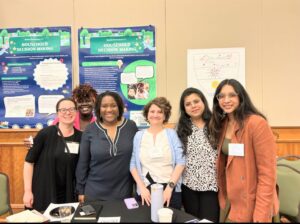Research
As an ecological anthropologist, I run the Coastal Communities Adaptation Lab at Rutgers University.
My scholarship centers on understanding the nexus among behavioral adaptation, uncertainty, and socioecological change to inform policy solutions. More concretely, my work explores how perceived socioeconomic and environmental uncertainty shapes patterns of resource use among coastal communities and the structure of the institutions created to manage the use of those natural resources.
- Refocusing attention on the processes behind adaptation, including the identification of the energetic and socioeconomic costs of adaptation, my research has direct implications for intervention programs based on alternative livelihood solutions.
- By investigating the compounded effects of multiple stressors on resource use within coastal landscapes, my work advances current indicator frameworks proposed by academic, government, and civil sectors that seek to evaluate the human dimensions of environmental and ecological change.
- My work analyzes how institutions and knowledge systems may transform due to socioecological pressures, advancing the design of robust principles for natural resource governance under high uncertainty.
Why coastal and fluvial geographies?
Because coastal and fluvial geographies exhibit complex ecological dynamics, environmental and anthropogenic perturbations can effect rapid change and trigger large-scale systemic transformations. Within coastal habitats, uncertainty, defined as the inability to anticipate future events with some degree of probability, can result from sudden environmental or socioeconomic disruptions, reflect the action of more progressive processes of social and ecological change, or manifest the synergy of multiple stressors. Most significantly, uncertainty may produce instability in local subsistence systems and ultimately have long-term demographic repercussions. To cope with the uncertainty brought by environmental and anthropogenic fluctuations, households adopt various cultural and behavioral responses, institutional arrangements, and governance structures. This process of adaptation is continuous and ongoing. However, current adaptation research is mainly concentrated on measuring economic, demographic, or infrastructural dimensions rather than eliciting and assessing the multifaceted mechanisms enabling household-level responses to uncertainty.
Understanding the pathways in which adaptation occurs and its gradual and operative nature is key for advancing sustainable solutions.
Approaches
In my work, I combine behavioral, ethnographic, and nutritional status assessment techniques to investigate whether unpredictable variations in a household’s returns can explain their decisions about effort, income diversification, and dietary health. Relying on socioecological systems theories, adaptation perspectives, institutional design approaches, and prolonged fieldwork, my research also examines the compounded impacts of long-term anthropogenic and environmental change on livelihoods and regimes of resource governance and knowledge systems.
In addition to qualitative research techniques, my scholarship is complemented by archival research, ecological surveys, and in-situ weather measurements to assess the changes in environmental conditions and critical nutritional species at different temporal scales. My fieldwork is focused on coastal communities in the U.S. (Gulf of Mexico, Northeast Atlantic), Cuba, and Indonesia, each experiencing transitions from exposure to extreme events, increasing sea levels, ocean warming, overfishing, and industrial or agricultural development.
Areas of Work
My current projects examine four sets of closely interrelated phenomena.
-
What are the immediate correlates of climatic and economic variation in overall well-being, dietary health, and household physical activity levels?
Check my work in Cuba, Norhteast U.S. and Indonesia to know more.
-
What are the responses and adaptation strategies exhibited by local households exposed to these stressors?
Check my work in Cuba, Norhteast U.S. and Indonesia to know more.
-
How are livelihoods and resource use practices affected by the synergistic impacts of environmental variation, economic development (offshore extractive activities), and natural resource policies?
Check out my work in the U.S. (Northeast and Southeast) to know more.
-
How do we measure short-, medium–, and long-term impacts?
Check out my work in the U.S. (Northeast and Southeast) to know more.
Where I work (click on each location to find out more!)
